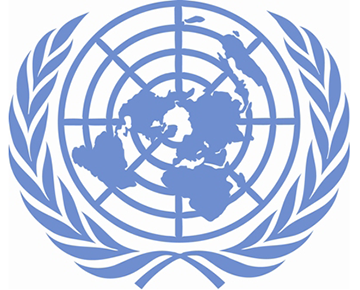24 October — United Nations Day`The United Nations is needed more than ever at this time of multiple crises. Poverty, disease, terrorism, discrimination and climate change are exacting a heavy toll. Millions of people continue to suffer deplorable exploitation through bonded labour, human trafficking, sexual slavery or unsafe conditions in factories, fields and mines. The global economy remains an uneven playing field`.
(From the Message on United Nations Day by the UN Secretary-General Ban ki-Moon, 24 October 2014)
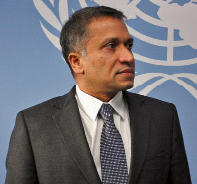 Sanaka Samarasinha, UN Resident Coordinator / UNDP Resident Representative in Belarus:
Sanaka Samarasinha, UN Resident Coordinator / UNDP Resident Representative in Belarus:UNDP is the UN’s global development network, advocating for change and connecting countries to knowledge, experience and resources. UNDP partners with people at all levels of society to help build nations that can withstand crisis, and drive and sustain the kind of growth that improves the quality of life for everyone. On the ground in 177 countries and territories, we offer global perspective and local insight to help empower lives and build resilient nations.
UNDP is working in Belarus since 1992. The growing partnership between UNDP and Belarus is based on a mutual exchange of knowledge and expertise. UNDP is an important gateway for Belarus in accessing international expertise, policy advice, and best practices. In turn, Belarus is an indispensable link in this global network, allowing UNDP to assist other countries using Belarus’ knowledge and development experience. In 2014 UNDP in Belarus implements project portfolio, consisting of 29 projects and totalling $20.6 million.
We provide support and assistance in achieving economic development through support of public-private partnership, local development and SMEs, and by promoting trade.
We help to protect environment through introducing new approaches to the management of peatlands and river basins, fostering international environmental cooperation and supporting national nature reserves.
We help in saving human lives through supporting HIV and TB treatment, working with government and civil society in ensuring universal access to prevention of HIV and promoting healthy lifestyles. UNDP experts help promote inclusive society for less abled and vulnerable people, opening greater opportunities for them and for Belarus itself.
We help Belarus in the area of effective and inclusive governance by assisting to improve the court system, helping to combat human trafficking, creating mechanisms and systems to promote human rights, particularly of vulnerable groups.
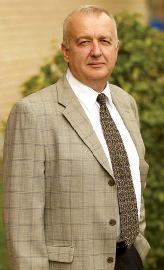 Yuri Oksamitniy, UNICEF Representative in Belarus:
Yuri Oksamitniy, UNICEF Representative in Belarus:UNICEF activities in Belarus are aimed at supporting national plans and programmes in the field of health and early childhood development, improvement of the situation of children in the Republic of Belarus, including the most vulnerable children, prevention of poor behaviours, HIV/AIDS among children and youth, promotion and protection of children’s rights.
UNICEF programmes are implemented under the auspices of the Belarusian Government and in cooperation with other UN agencies, NGOs, celebrities, mass media. UNICEF’s major partners in Belarus are ministries of foreign affairs, education, health, justice, internal affairs, labour and social protection, emergency situations, information as well as the National Statistics Committee, Prosecutor-General’s Office, National Commission of Children’s Rights, and local authorities.
In the period from 2006 to 2010, the first UNICEF Country Programme for Belarus, with the budget of $5.4 million was successfully realised. Currently, a second Country Programme for 2011-2015 with a total budget of $8 million is being implemented.
Within the framework of the Country Programme projects are developed and implemented to contribute to improvement of child protection legislation; to examining and adjusting best international practices; to introduce new methods of work; and to enhance professional skills of specialists working with children.
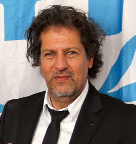 Jean-Yves Bouchardy, UNHCR Representative in Belarus:
Jean-Yves Bouchardy, UNHCR Representative in Belarus:UNHCR Office in Belarus was established in 1995. It works with a wide variety of people of concern in Belarus, in particular, with asylum-seekers, recognised refugees and stateless people.
UNHCR strategic action in Belarus is focused on enhancing compliance with international standards through dialogue with government departments, particularly on protection-sensitive approaches to asylum issues; protection monitoring to ensure access to territory and asylum procedures; assistance in realization of long-term solutions for refugees, first of all, local integration into Belarusian society, as well as voluntary repatriation and, as a protection tool for those who are not able to integrate or return home, resettlement to the third safe countries. UNCHR is also informing society at large and organizations dealing with UNHCR persons of concern about their needs encouraging to render assistance to the most vulnerable individuals.
As of 1 October 2014 there are 899 recognised refugees and 145 individuals who were granted complementary protection in Belarus. 623 foreigners applied for asylum in Belarus during the period of January-September 2014 inclusive, including nationals of Ukraine (484), Syria (53) and Afghanistan (28).
The Agency is mandated to lead and co-ordinate international action to protect refugees and resolve refugee problems worldwide. Its primary purpose is to safeguard the rights and well-being of refugees. In addition to asylum-seekers and refugees, UNHCR is helping returnees, internally displaced people (IDPs) and stateless persons. Today UNHCR is helping 35.8 million people in over 100 countries.
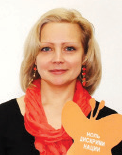 Dr Vera Ilyenkova, UNAIDS Country Manager:
Dr Vera Ilyenkova, UNAIDS Country Manager:The Joint United Nations Programme on HIV/AIDS (UNAIDS) in Belarus unites the efforts of 11 UN organisations — UNHCR, UNICEF, UNDP, UNFPA, UNODC, ILO, UNESCO, WHO and the World Bank — and works closely with global and national partners to maximise results for the AIDS response. UNAIDS coordinates efforts of all partners to achieve its shared vision of Zero new HIV infections, Zero discrimination and Zero AIDS-related deaths.
UNAIDS priorities in Belarus for 2014-2015 are based on HIV Political Declaration of 2011 picking up three of its 10 targets:
• Prevent HIV among people who inject drugs (scaling up harm reduction interventions and Opioid substitution treatment in particular).
• Universal access to lifesaving HIV treatment (antiretroviral therapy): the country has experienced great progress in the number of people living with HIV on treatment.
• Close the resource gap (increase share of domestic funding and ensure sustainability of HIV response after finishing financial support providing by the GFATM grants).
UNAIDS in Belarus provides technical and financial support to the Government and different NGOs working in the area of HIV/AIDS to promote coherent and effective action of the UNAIDS cosponsors in Belarus in support of an expanded national response to HIV and scaling up towards universal access to prevention, treatment, care and support.
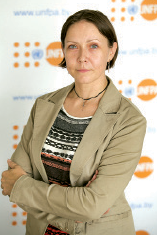 Elena Kasko, Assistant Representative UNFPA:
Elena Kasko, Assistant Representative UNFPA:Each UNFPA’s initiative serves the global goal of promoting the right of every woman, man and child to enjoy a life of health and equal opportunities.
The programmes of the United Nations Population Fund in Belarus cover the following thematic areas: reproductive health, gender and population development.
The United Nations Population Fund promotes national capacity building in developing evidence based national and regional policies and programmes in the area of reproductive health, gender and population development.
UNFPA also strives not to stay indifferent to the issues related to the current demographic situation in the country, and those which are most urgent for Belarus at the moment: aging society, life expectancy gap between man and women, etc. The Fund provided technical assistance in the preparation and conduct of the censuses of 1999 and 2009.
UNFPA partners with the Ministry of Labour and Social Protection of Belarus in implementing the National Plan to Secure Gender Equality in the Republic of Belarus for 2011-2015. UNFPA coordinates the joint efforts of different stakeholders (government, UN agencies, NGOs, etc.) in prevention of domestic violence.









